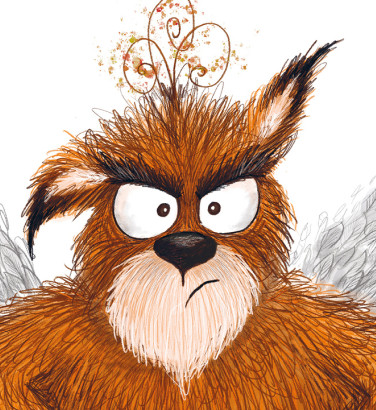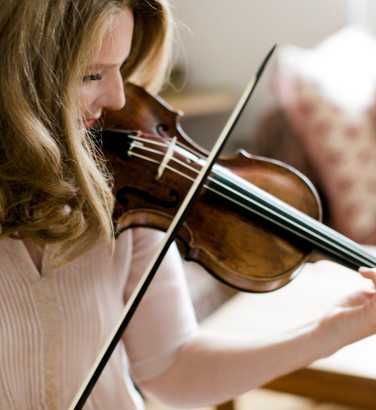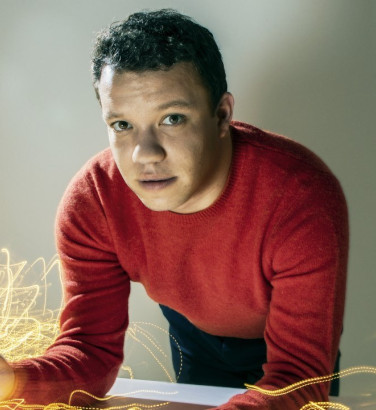
Ale Carr: "The Four Seasons mostly consists of a good collection of folk tunes"
5 Feb 2024
News Story
Ale Carr (photo credit: Jesper Van)
At first glance, you may well struggle to see how a player of plucked string instruments within the Nordic folk tradition could fit into a classical concert. Ale Carr mightn't have come to our attention if it weren't for the cross-genre fertilisation at which Pekka Kuusisto excels, which in the 2023/24 Season saw Vivaldi's Four Seasons interspersed with Nordic folk songs in a way that is positively enlightening.
We are delighted that Ale agreed to shed light on this process in a short interview.
How did you first meet Pekka Kuusisto?
I met him by chance in Daniel Hope's house in Berlin, as we were both doing some TV recordings there the same day. It was all quite brief, but some time later Pekka called me up and asked if I wanted to play some "continuo" for the Four Seasons with him. I had no idea what continuo was and had never listened to that piece before, but he gave me his word that it would be easy for me. It turns out it was a pretty good match!
For those of us unfamiliar with the cittern, could you tell us what makes it distinctive among the large family of plucked string instruments?
Well, for those of you that have heard about a cittern, you might think of a renaissance instrument. What I have is a modern creation inspired by a movement in the 60s and 70s where Irish folk musicians were experimenting with the Greek bouzouki and different mandolin instruments - resulting in an Irish bouzouki. The 5-course version of that was called a cittern. In Sweden there was a similar movement resulting in Swedish bouzouki, with a more melodic, warmer and ”rounder” feel to it. My instrument is an Irish cittern in format and tuning, but soundwise it’s a Swedish instrument.
Your 2024 concerts with Pekka and the SCO juxtaposed Vivaldi’s Four Seasons with Nordic folk tunes – an unexpected combination! What makes it work?
Well from my perspective as a traditional player, The Four Seasons mostly consists of a good collection of folk tunes. And that’s a praise coming from me. The Nordic folk tradition has a big emphasis on improvised accompaniment especially for counterpoint second voices - so when I perform this basso continuo role I’m more or less just doing what I’ve grown up doing. There’s a lot of baroque era music in the living Nordic tradition as well, so it honestly just feels like a natural match.
You are known for performing with a wide variety of ensembles, from choirs to big bands. How do you feel these different audiences respond?
Well, Nordic traditional music isn’t that well known to the world yet - and that’s something a growing number of people are trying to change - so inevitably there’s a sense of surprise. Of the pleasant and exciting kind, usually. Like the Scandinavian languages, our traditional music has a strong emphasis on melody and phrasing, and these are universal qualities that you can appreciate no matter where you come from geographically or genrewise. My artistic drive is to give both myself and the audience a new experience, and I love the feeling of challenging a strong melody and see how many different shapes it can take, and collaborations with other genres and formats is a satisfying and exciting way to do it.
Finally, how familiar are you with Scottish folk music?
Oh, I love it! Other than listening to a lot of great albums, I’ve been lucky enough to have taken part in a few artistic collaborations with Scottish traditional players over the years. I played Celtic Connections in Glasgow a few weeks ago and cannot wait to be back in your lovely country so soon and hopefully bump into some good friends as we head out for pubs and jamming after the shows.
Related Stories
![]()
The Great Grumpy Gaboon: a chat with Jay Capperauld and Corrina Campbell
30 December 2024
What is a Gaboon, and why is it grumpy? We chatted to the creators of our new Family Festival to find out ...![]()
Rachel Podger: "I'm especially fond of the Polonaise in the First Brandenburg Concerto"
9 December 2024
The feted British violinist talks to us about her love for the Brandenburg Concertos and more.![]()
Ryan Bancroft: "a conversation with the leader of a Finnish orchestra changed how I heard Sibelius"
30 September 2024
We speak to conductor Ryan Bancroft about music from (his not quite native) Scotland and Scandinavia.


